Govt may go for quota reforms
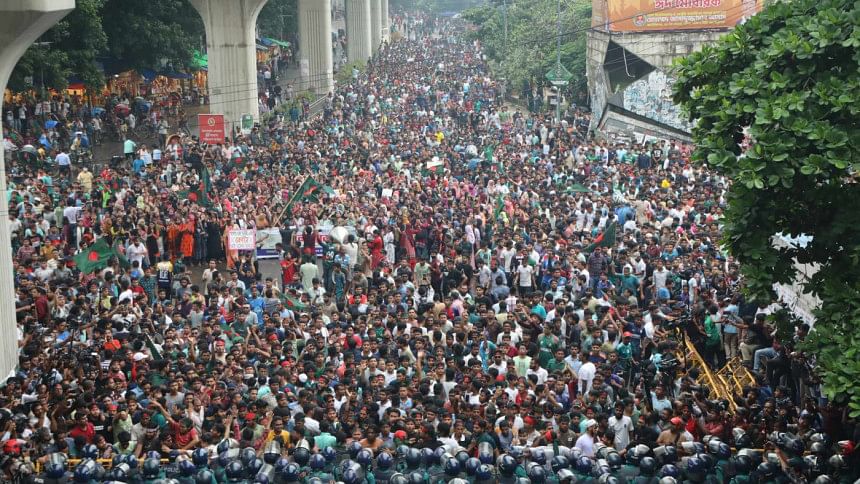
The government is considering a "logical reform" in the quota system in the public service, but it will not take any initiative to that end or give any assurances until the matter is resolved by the Supreme Court.
It may form a commission to discuss the possible reform upon completion of the legal procedure at the apex court, highly placed sources in the government told The Daily Star yesterday.
Representatives from different agencies and the ruling party are already holding "unofficial talks" with the protesting students, seeking to get their views on the "right percentages" of quota in government jobs. Agency officials and AL leaders are also urging them to be tolerant and mindful of the public sufferings stemming from their street protests.
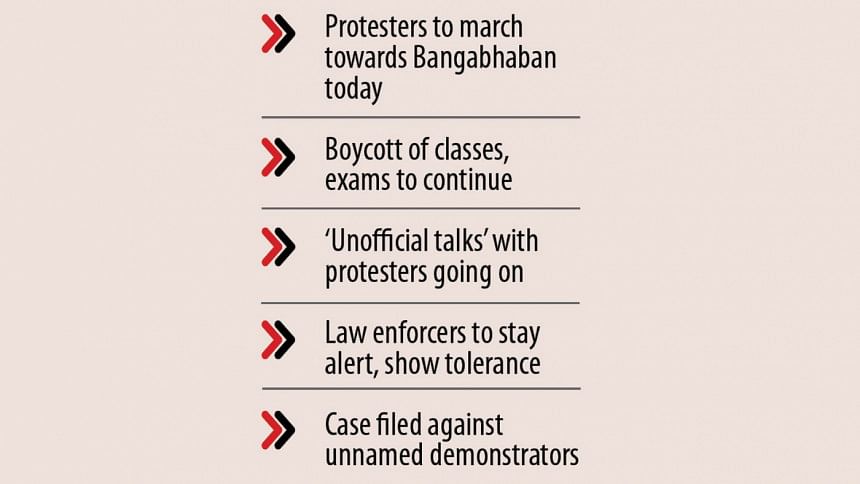
Talking to The Daily Star yesterday, Mohammad Ali Arafat, state minister for information and broadcasting, hinted at a "logical reform" of the quota system after a final court verdict.
"Everything changes, and reforms are carried out in the course of time.This can happen on the issue of quota in government jobs too," he said.
"The government will take an initiative in this regard, but only after the conclusion of the court proceedings. There will be an acceptable solution once the legal process ends. Until then, the protesters should wait."
Though several ministers and AL leaders publicly issued warnings against blocking the roads and highways, police have been asked to show restraint and go soft on the demonstrators until they resort to vandalism, said police sources.
A top official of Dhaka Metropolitan Police said they were instructed to show maximum restraint and not to engage in any confrontation with the students.
"But police will be on high alert to avoid any unpleasant situation," the official said.
The government will continue the pressure on the protesters to keep them off the streets, as the countrywide demonstrations and transport blockades are affecting the public.
Warnings by ministers and filing of cases against unnamed demonstrators are part of that strategy, government sources said.
Meanwhile, the protesters yesterday announced fresh programmes for today. Instead of blockade, they will bring out processions, march towards the Bangabhaban and DC offices, and boycott classes and examinations across the country.
According to sources, the students have softened their position to avoid possible police action since they want to continue the protests until their demands are met.
Addressing a press conference at Dhaka University yesterday, Hasnat Abdullah, a student of the university and one of the coordinators of the anti-discrimination student movement, said they will march towards the Bangabhaban today to submit a memorandum to President Mohammed Shahabuddin.
He said their peers in districts will also hand over memorandums to respective deputy commissioners for placing them to the president. And their boycott of classes and exams will continue too.
"The government is making plans and preparations to suppress our movement. We have been protesting peacefully," said Nahid Islam, another organiser of the protests.
The government should have resolved the crisis through discussions with the students at the beginning. If anything goes wrong, it must shoulder the responsibility, he said.
Meanwhile, police yesterday filed a case with Shahbagh Police Station against unnamed protesters on charges of vandalising police vehicles and assaulting law enforcers during a demonstration in Shahbagh on Thursday.
Khalilur Rahman, a driver of the transport department of Rajarbagh Police Lines, filed the case.
DMP Additional Commissioner (detective branch) Harun Or Rashid said they are investigating if any infiltrators are trying to take advantage of the situation and divert the movement in other directions.
Students at public universities and colleges, along with jobseekers, have been demonstrating against the quota system in government jobs for the last two weeks. They occupied key city intersections, major highways, and rail lines.
The protests began after the High Court on June 5 ruled that the 2018 government circular abolishing the quota system was illegal, effectively reinstating the quota system. The government appealed against the decision, and the Supreme Court has issued a status quo on the HC order.
In 2018, the government issued a circular abolishing the quota system for Class-1 and Class-2 jobs, in the wake of massive protests by students, who wanted reform and not an abolition.
Until then, 56 percent of government jobs had been reserved for candidates from various quotas. Of them, 30 percent were for freedom fighters' families, 10 percent for women, 10 percent for people from underdeveloped districts, 5 percent for members of indigenous communities, and 1 percent for persons with disabilities.
According to sources, a good number of AL leaders also favour quota reform.
During unscheduled discussions at the party president's Dhanmondi office yesterday, some leaders said there is a groundswell of public support for the quota reform demonstrations, and any police action on students will fomentanti-government sentiment.
During the discussions, an AL leader said some people are labelling all the agitating students as "children of razakars", but this is not fair. Such sweeping generalisations might backfire, the leader pointed out.
Talking to this newspaper, several other AL leaders also said it was time to reform the quota system.
The Public Service Commission data shows that before the quota was abolished, only around 9 percent of the posts set aside for freedom fighters' families were filled and the rest 21 percent remained vacant, they say.
"If this is the reality, then why should the government take a beating for the 30 percent quota for freedom fighters' children and grandchildren. Even many Chhatra League leaders support the protesters," an AL leader told The Dily Star, wishing anonymity.
AL General Secretary Obaidul Quader at a press conference yesterday put emphasis on the necessity of the quota system in the country's current context.
Mentioning that quota system in government jobs exists in a number of South Asian countries, he said the participation of women and members of marginalised communities in Bangladesh's public services steadily declined in recent years in the absence of quota system.


 For all latest news, follow The Daily Star's Google News channel.
For all latest news, follow The Daily Star's Google News channel. 

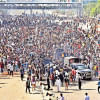
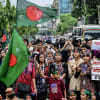
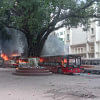
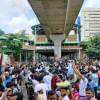


Comments